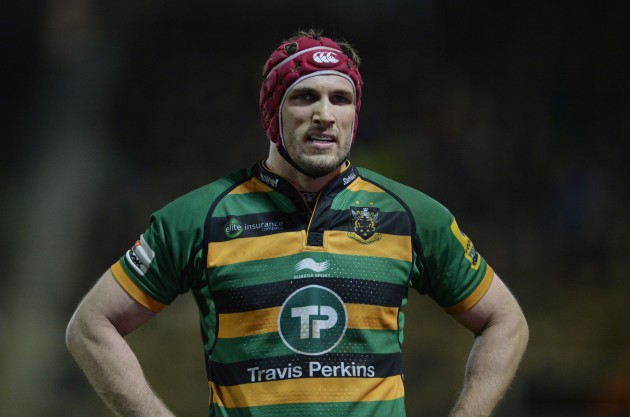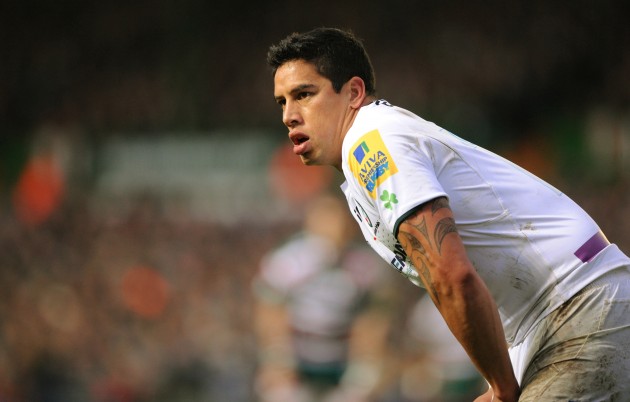Christian Day, chairman of the Rugby Players’ Association (RPA), believes that while there are steps still to be taken and a lot of information to digest on the issue of concussion, he is sure the governing bodies are making progress in looking after those involved.
Rugby World has put together an eight-page feature on concussion for the April edition, looking at case studies from all over the world, highlighting some shocking stories, finding out about research being done and what needs to change as well as discussing how concussion is treated in grass-roots rugby. However, while things must improve further, Day insists his peers are not hiding from the dangers of professional rugby.
“I would hope people playing the sport have given a serious look at the issues involved,” he says. “Obviously I’ve read a lot about it, and in America they’ve found links with concussion to Chronic Traumatic Encephalopathy (CTE) and neurodegenerative disease, but there have been no long-term studies in rugby yet. It is worth taking notice of and we have heard of the worst-case stories.
“The message is getting through to players and there is education. Things are not going to totally change overnight, but even a few years ago players were getting the smelling salts.”
We’ve also heard some of those saddening stories from the pro game. Shontayne Hape spoke of the pressure he felt to play in France through a column in the New Zealand Herald, explaining how he hid his symptoms, risking concussion from minor knocks because he was too proud, too scared, too embarrassed. He now fears for his memory and ability to concentrate. He worries that knocks twinned with a family history of dementia will cast a shadow over his future.
We saw Shane Cleaver, an ex-Chiefs prop who captained ITM’s Taranaki, speak out through the same publication about his own experiences of hiding his symptoms, kidding himself and fooling medics so he could play on. He now works on a farm with his brother-in-law Craig Clarke, who also had to retire from the game due to concussion whilst with Connacht and who is still too guarded to talk publicly about his issues. But that’s the pro game. Worse is the tragic story of 14-year-old Ben Robinson, who died after a rugby game in 2011.
Day has been saddened, too. He was disappointed to see his team-mate and friend George North be knocked “out cold” playing for Wales against England in the RBS 6 Nations. He watched on TV alongside millions of others, but the medics didn’t see it. Still, he is sure rugby is learning as a sport – that much is evident from the changes Wales introduced after the North incident.
Day insists that the game has evolved, pointing out that 125kg forward Samu Manoa can run like a winger, and it’s pleasing for him to see laws being discussed because of this – citing a crackdown on no-arm tackles.
But is rugby really forward-thinking enough?
“I hope that we are. The Players’ Association have formed a good relationship with Chris Nowinski and the work by him and Bob Cantu is being looked at, and Scottish Rugby are doing a lot of good with their study of former players, so hopefully rugby is taking a lead.
“I’ve been a professional for nearly 15 years and I’ve not seen players get pressured to play. I’ve seen people follow the protocols, but when you’re isolated it’s very different.
“We’re all playing the game we love. However, if you don’t feel you are being looked after or you have any suggestions on how to improve things, feed it into the people that can make a difference. If you just speak to your close friends, you’ll never make a change. If you want to change the game you love, do come forward.”
If you are a concerned player, or one with any suggestions, please contact Richard Bryan, the RPA’s rugby director who oversees player welfare and contractual issues. He can be emailed at: RBryan@theRPA.co.uk or phoned at either 020 3053 6673 or 07921 065947. and please read more about how to deal with concussed players. You can find World Rugby’s guidance here: http://playerwelfare.worldrugby.org/concussion
Read our in-depth, eight-page report on concussion in the April 2015 edition of Rugby World – on sale from Tuesday 10 March. For the latest Rugby World subscription offers, click here. To download the digital edition, click here.






